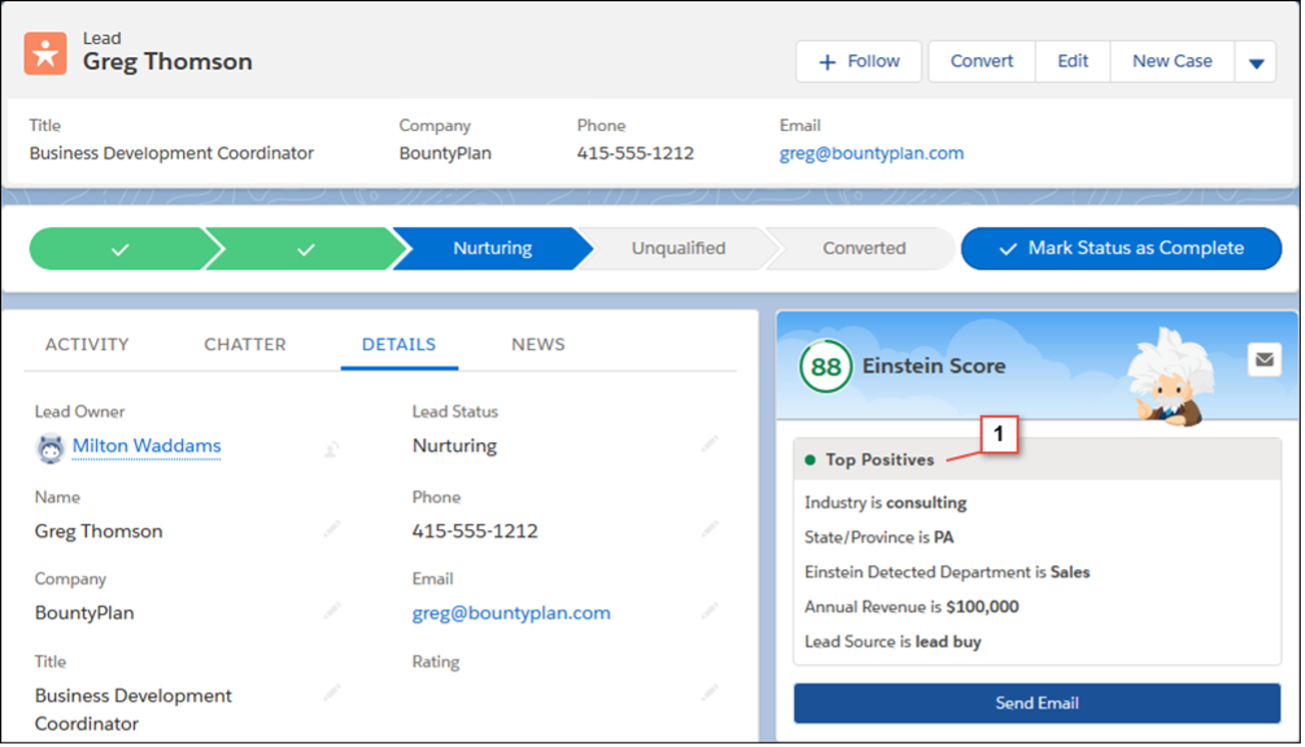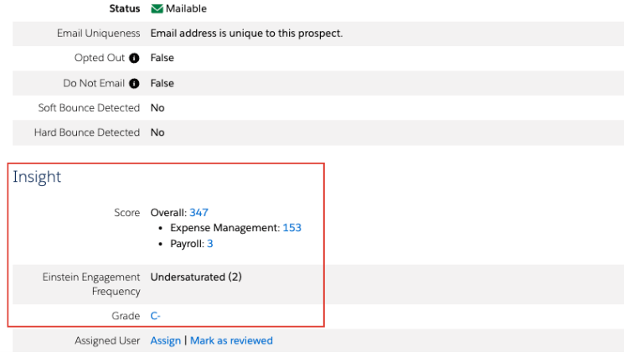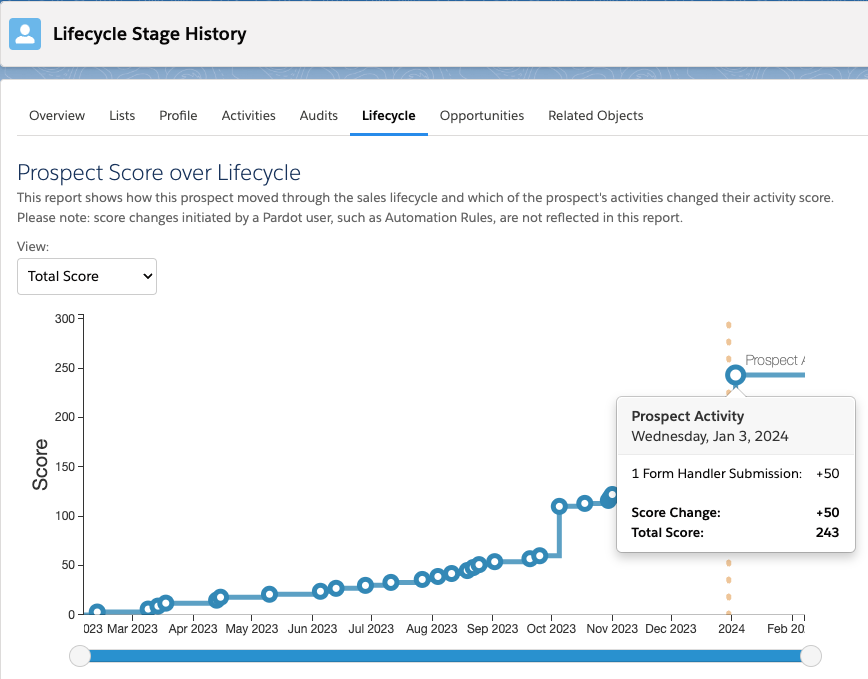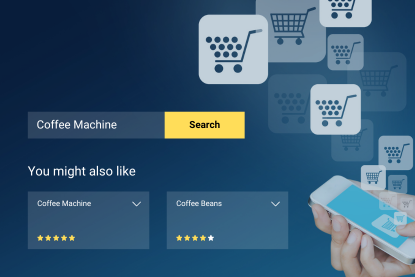Lead Scoring Strategies for Better Sales Conversions
Time is a precious commodity nowadays, especially in B2B sales and marketing. Reacting quickly to leads ready to buy can make a huge difference in your sales game. On the flip side, delays can lead to a loss of interest. Knowing when to offer a case study or when to push for a product demo makes the difference. But, how do you know when to step in? Lead scoring is the cornerstone of this process, ensuring that sales efforts are timely and impactful.

In this article, we will share a fail-safe implementation guide and the best industry practices for improving lead scoring:
- What is Lead Scoring (Lead Scoring vs. Lead Qualification)
- Why Lead Scoring Matters
- Lead Scoring Mistakes to Avoid
- How to Build a Lead Scoring Model
- Strategies to Elevate Lead Scoring Performance
Lead Scoring vs. Lead Qualification
Lead scoring is often confused with lead qualification. While both are aimed at identifying prospective clients, they are distinct in their approach and objectives. Let's set the facts straight.
Lead qualification sorts through your contacts to find potential long-term customers fitting your ideal customer profile (ICP). It's about focusing on the right leads.
Lead scoring, however, assigns a numeric value (points) to different lead behaviors and characteristics, like demographics or social media interactions, showing how ready they are to buy. It's a precise way to quantify a lead's potential.
Essentially, while both identify prospects, lead qualification filters them, and lead scoring ranks them.
Why Lead Scoring Matters?
Strategic lead scoring allows you to focus your efforts where they count the most, fostering a sense of clarity and direction in your sales endeavors.
A well-tuned lead scoring system can bridge the gap between sales and marketing teams, support collaboration, and unify objectives. By assigning scores to leads, sales and marketing teams can assess a prospect’s interest level and ensure all the efforts are streamlined towards the same goal.
Another benefit of lead scoring is that it facilitates data-driven decisions. Hence, it becomes easier for organizations to optimize time and other resources allocated to converting leads. By scoring leads marketers and salespeople can refine their strategies for continued engagement and more conversions.
According to a study by Aberdeen Group, implementing effective lead-scoring models boosts annual revenue by 50% and conversion rates by 26% while causing a 25% decrease in cost per lead.
Common Lead Scoring Mistakes Affecting Your Results
Every sales professional knows the sting of a lost lead that seemed within reach. Avoiding missteps in lead scoring is key to preventing such disappointments. Here are four common mistakes salespeople make with lead scoring:
Over-relying on Gut Feeling
While experience and intuition play roles in sales, emphasis should remain on data-driven insights. Salespeople should balance their instincts with the objective metrics lead scoring systems provide.
Ignoring Behavioral Signals
Behavioral signals, like website visits and content downloads, provide valuable insights into a lead's level of interest and intent. Such valuable information must be considered for more accurate lead scoring.
Over-complicating the System
While having a comprehensive lead scoring system is essential, making it too intricate can lead to confusion and inconsistency. A system that's difficult to understand or implement can deter salespeople from using it.
Not Aligning with Marketing
Lead scoring should be a collaborative effort between sales and marketing teams. Failing to align on scoring criteria can lead to miscommunication and missed opportunities. Regularly syncing with marketing ensures that both teams are on the same page regarding the most valuable leads.
How to Build a Lead Scoring Model That Works
The value derived from a lead scoring system depends on how well it is implemented. Below are the basic steps to take in designing lead scoring that works:
Gather All Relevant Data
To efficiently score leads, businesses need to collect demographic, behavioural, and engagement data and past purchase history. This will require setting up various collection tools such as website and social media analytics, online forms, surveys, marketing automation platforms, and customer relationship management (CRM) software to have a single customer view.
Define the Scoring System
The next step is for the marketing and sales team to collaboratively decide on the customer attributes and actions that should contribute to the lead scores. After deciding on the criteria, assign scores based on significance in predicting conversion. For example, requesting a product demo is more suggestive of conversion than visiting a product page. So, it should be assigned a higher score.
Negative scoring, which subtracts scores for unwanted actions such as opting out of a newsletter or abandoning carts, should be incorporated for a more comprehensive scoring system.
Determine Thresholds
After deciding on the lead scoring system, determine what the scores represent. At what score should a lead be passed to the sales team for direct sales engagement? At what score does a lead become eligible to enter the nurturing campaign? It is crucial to determine the score thresholds for segmenting leads into marketing-qualified leads (MQLs) or sales-qualified leads (SQLs) and the actions to take when leads reach important scores.
Test and Refine
Validate the performance of your scoring model by applying it to historical data to see how accurately it successfully predicts past conversions. Use feedback from that evaluation to improve your algorithm as many times as needed to ensure the accuracy of your model before launch.
Strategies to Elevate Your Lead Scoring Performance
The goal of lead scoring is to drive higher sales and revenue. For that to happen, businesses must follow the best practices shown to produce fantastic results. Here are some of the leading strategies to employ to take your lead scoring system to the next level:
Incorporate Artificial Intelligence (AI)
AI can be a powerful ally for enhancing lead-scoring processes. AI algorithms can handle large volumes of data, analyze them, and extract insights that improve scoring decisions.
Salesforce's Einstein Lead Scoring is a prime example of AI's application in this domain. It uses data from your CRM to score leads based on how likely they are to become opportunities, learning from past lead and conversion data to predict future outcomes.

This AI-driven approach ensures that sales teams are focusing on leads with the highest propensity to convert, optimizing both time and resources for maximum sales impact.
Tap into Real-time Scoring
Implement a dynamic lead scoring system that reflects the most current data to ensure your sales team is pitching at the perfect time.
For example, a tool like Pardot, integrated within Salesforce CRM, takes lead scoring to a more nuanced level.
It dynamically adjusts scores based on lead interactions:
- Email Engagement: Opens and clicks in emails sent through Pardot can increase a lead’s score, signaling interest.
- Content Interaction: Downloading a whitepaper or engaging with other marketing content can also bump up a lead’s score.
- Website Visits: Frequent visits to your website contribute to an increased score, indicating a growing interest.

This ensures leads are engaged at the most opportune moment, maximizing resources and increasing conversion rates.
Invest in the Right Tools
Lead scoring can become so much easier when supported with the right tools. CRM and automation platforms should be at the top of the list of tools to integrate with your lead-scoring models. Powerful CRM systems such as Salesforce CRM or Microsoft Dynamics 365 can assist by providing a centralized source capable of segmentation and analytics.

Introducing automation is also important. These tools also offer several automation capabilities to help marketing and sales staff manage hundreds to thousands of leads more efficiently.
Continuously Update Models
Keeping your lead scoring system at a high level of performance requires regular monitoring and revision. The market is constantly evolving, and lead behaviours and preferences keep changing. Hence, responding by constantly adding new datasets and refining the scoring systems is important to ensure the model stays accurate and relevant.
A Necessity for Modern Sales Teams
Gone are the days when perfecting a lead-scoring system was extremely difficult. Lead scoring is highly beneficial as it allows sales teams to catch leads when they are most interested in buying the products on offer. Following the steps above should simplify creating a scoring system that works, particularly if tools like AI and CRM are integrated to provide predictive scoring, automation, and real-time scoring capabilities.
Lead scoring can get even easier when you involve an experienced implementation partner like ACTUM Digital. With our wealth of practical experience and technical knowledge, we can help your brand formulate the best strategy and set up the right tools to boost not just your lead scoring but also your entire sales pipeline management.
Author

Christoph Wiederle
Business Director Salesforce at ACTUM Digital. You can find me on LinkedIn
You may also like...

[16/11/2023] Proven Do's and Don'ts in B2B Lead Nurturing
Lead nurturing in the B2B sector is not just a tactic; it's an ongoing strategy that can significantly affect the bottom line. This guide delves into the key stages of lead nurturing, offering insights into the do's and don'ts that can make or break your efforts.
Read the Insight
[08/09/2023] How a Recommendation Engine Can Boost Sales in B2B Manufacturing
Discover how implementing a recommendation engine can significantly enhance sales in the B2B manufacturing sector. Explore the benefits and strategies behind this powerful tool.
Read the Insight
[24/08/2023] How Sales Pipeline Management Can Transform Business
Discover how Sales Pipeline Management can revolutionize your business strategy, driving B2B lead generation, optimizing sales processes, and boosting revenue.
Read the Insight